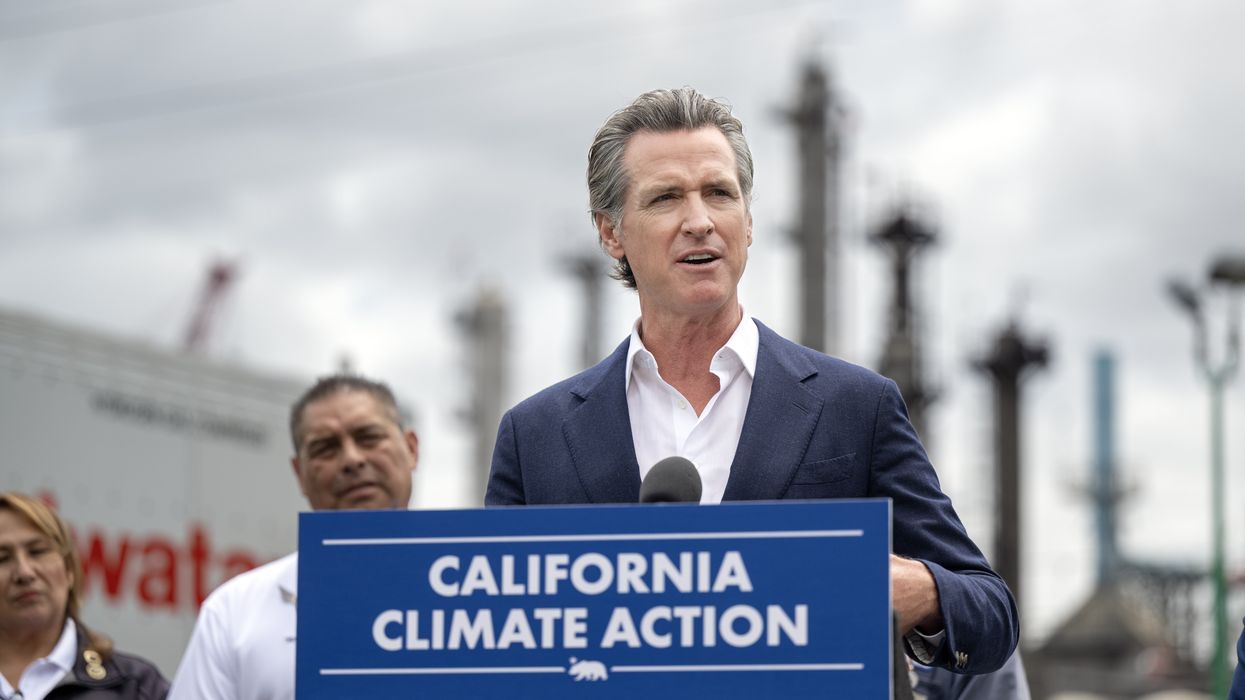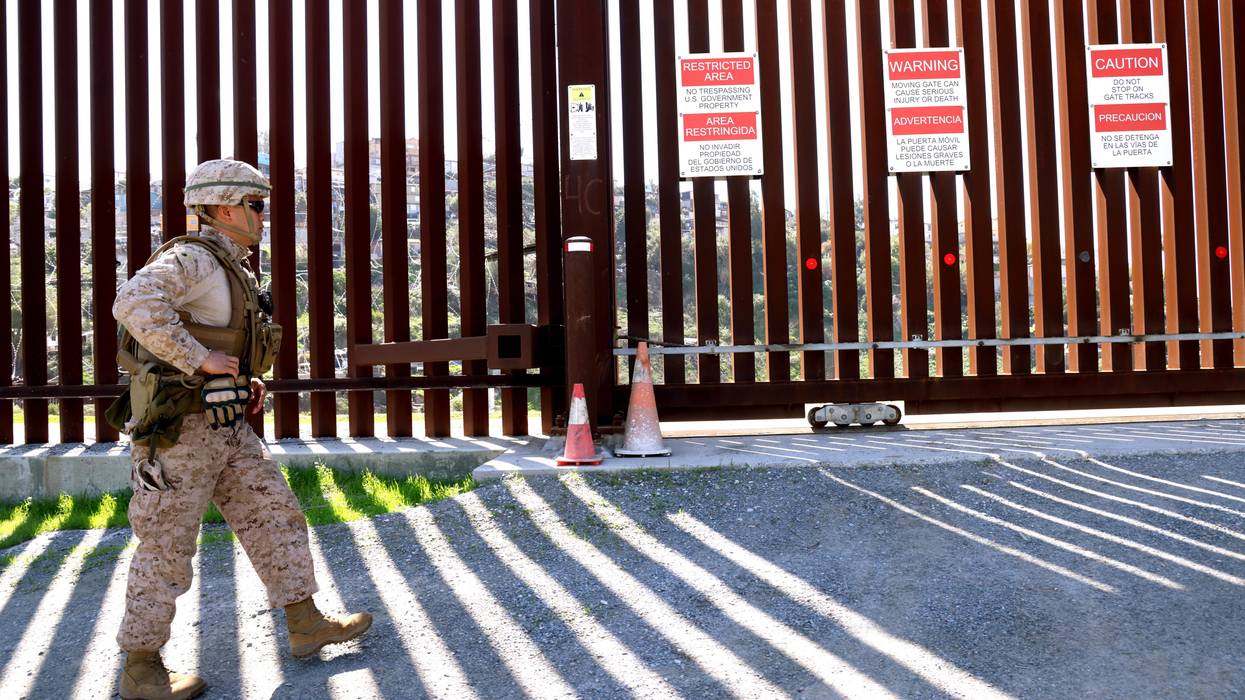Climate Week Is Here; Our Governors Are Still Siding with Polluters
Frontline communities are exposing blue state governors that sell themselves as climate leaders while favoring polluters.
I grew up in New Mexico, where oil rigs appear in every direction and wildfire smoke fills the summer air. For years, I’ve sat through state climate hearings and planning sessions, believing our leaders might finally act with courage. Instead, what I’ve seen is a machine built to protect industry and silence communities.
Gov. Michelle Lujan Grisham sells New Mexico as a climate leader, but her record tells another story. This year alone, her administration advanced industry schemes like the Strategic Water Supply Act, moving forward with rules to recycle toxic fracking waste.
This comes in addition to leaving basic protections like a drilling setback law off the table and welcoming Wall Street giant Blackstone to place a bid to take over PNM, our largest utility in New Mexico—handing over our energy future to corporate profiteers.
This isn’t climate leadership. It’s industry power dressed up as progress—at the expense of our health, water, and future.
So here is our challenge to Governors Lujan Grisham, Shapiro, and Newsom: If you truly oppose Trump’s fossil fuel agenda, prove it.
Pennsylvania and California tell a similar story.
Pennsylvania Gov. Josh Shapiro brands himself as a pragmatic moderate. In reality, he green-lit new gas plants, advanced fossil fuel-powered data centers, and supported liquefied natural gas (LNG) export terminals—projects that lock in fossil fuel expansion while exposing Pennsylvanians to deadly risks.
Worse, his administration is backing legislation like HB 502 and SB 939 that strip municipalities of the power to reject harmful facilities, in direct violation of Pennsylvania’s constitutional right to clean air and water. Families already sick from fracking are being sacrificed so Shapiro can keep industry happy and court national credibility. That isn’t pragmatism. It’s siding with polluters over people.
Gov. Gavin Newsom positions himself as a global climate champion. But in California, frontline communities experience a different reality. Basic health protections like the oil drilling setback law remain under attack, while projects like the Sable Pipeline continue to threaten communities and ecosystems.
Newsom touts his “climate leadership” on the world stage, yet at home he delays, waters down, or sidesteps measures that would phase out fossil fuels. Recently, Democratic lawmakers—backed by Newsom—passed a “climate” package that extends California’s cap-and-trade system for another 15 years while also permitting new drilling. It’s yet another regulatory giveaway to Big Oil. California is sold as a model of climate action, but the truth is clear: Fossil fuel power still dictates the terms.
The pattern is undeniable: governors who pose as climate leaders while protecting fossil fuel interests. Their playbook is the same—adopt the language; sign onto climate alliances; and then push carbon capture, cap-and-trade systems, produced water, hydrogen, and LNG as “solutions.” These are not solutions. They are lifelines for oil and gas, designed to extend extraction.
This is not accidental. It is a deliberate political strategy—a blue-state echo of US President Donald Trump’s fossil fuel agenda. Yet the result is the same: communities poisoned, democracy sidelined, industry shielded. The message to frontline communities is clear: Our lives are expendable if they threaten the profits of fossil fuel companies.
That’s why this Climate Week in New York City, frontline communities from New Mexico, California, and Pennsylvania are coming together to expose the truth. Behind the speeches and pledges, our governors are siding with polluters. They cannot continue to market themselves as climate champions while advancing the fossil fuel agenda at home.
We know what real climate leadership looks like. A just transition—led by communities and workers, not corporations—can phase out fossil fuels, create union jobs, and protect public health. It means rejecting false solutions. It means putting water, air, and people before industry. It means confronting the political power of fossil fuels head-on.
As the 2026 gubernatorial races approach, young people like me are paying attention. We don’t just want new leaders. We demand leadership that stands up to polluters and delivers a future worth living in.
So here is our challenge to Governors Lujan Grisham, Shapiro, and Newsom: If you truly oppose Trump’s fossil fuel agenda, prove it. Stop greenwashing. Stop silencing frontline communities. Stop pushing industry scams dressed up as climate policy.
Because climate action without justice isn’t action—it is betrayal. And frontline communities are not backing down until we win the future we deserve.


